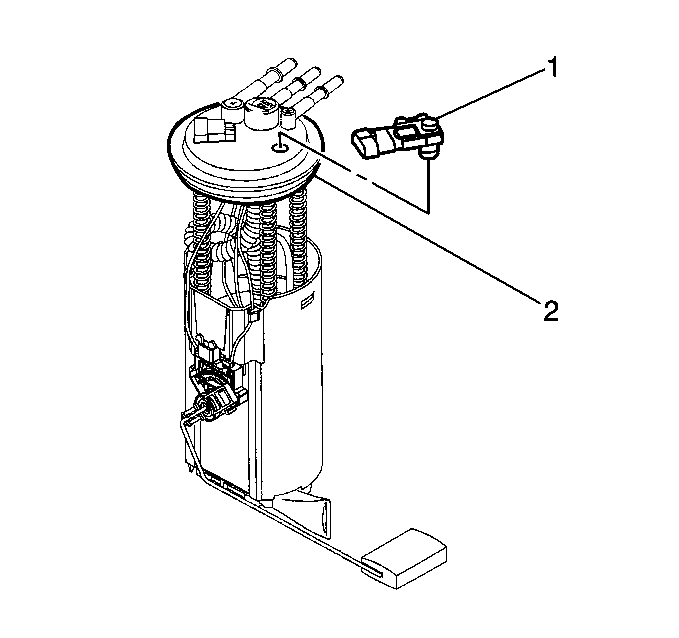Removal Procedure
Caution: Unless directed otherwise, the ignition and start switch must be in the OFF or LOCK position, and all electrical loads must be OFF before servicing
any electrical component. Disconnect the negative battery cable to prevent an electrical spark should a tool or equipment come in contact with an exposed electrical terminal. Failure to follow these precautions may result in personal injury and/or damage to
the vehicle or its components.
- Disconnect
the negative battery cable.
- Relieve the fuel system pressure. Refer to
Fuel Pressure Relief
- Drain the fuel tank. Refer to
Fuel Tank Draining
.
- Remove the fuel tank and sender assembly. Refer to
Fuel Tank Replacement
.
Disassembly Procedure

- Note the position of the
fuel pump strainer on the fuel pump.
- Support the pump with one hand and grasp the strainer with the
other hand.
- Rotate the strainer in one direction and pull away from the pump.
- Inspect the fuel pump strainer. Replace the strainer if it has
contaminates and clean the fuel tank.
- Inspect the fuel pump inlet for dirt and debris. If found, replace
the fuel sender assembly.
Assembly Procedure
Notice: Do not fold or twist the strainer when installing the sending unit.
This action restricts fuel flow.
- Support the pump with one hand and position the new fuel pump
strainer on the pump in the same position as noted during disassembly.
- Push on the outer edge of the ferrule until fully seated.
Installation Procedure

- Install a new seal, sender
and lock ring. Make sure the lock ring notches fit over the tabs on the tank.
- Install the cam lock assembly. Turn the cam lock clockwise to
lock it.
- Install the fuel tank. Refer to
Fuel Tank Replacement
.
- Add fuel removed from the tank.
- Connect the negative battery cable.
- Check for fuel leaks.
| 6.1. | Turn the ignition ON for 2 seconds. |
| 6.2. | Turn OFF the ignition for 10 seconds. |
| 6.3. | Again, turn the ignition switch to the ON position. |
| 6.4. | Check for fuel leaks. |


